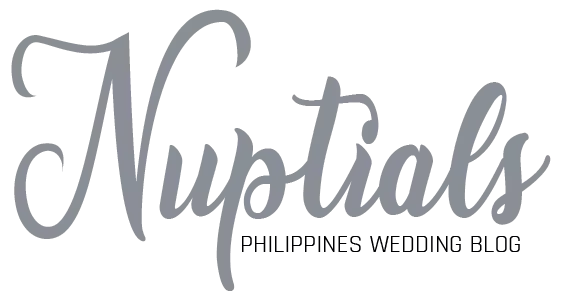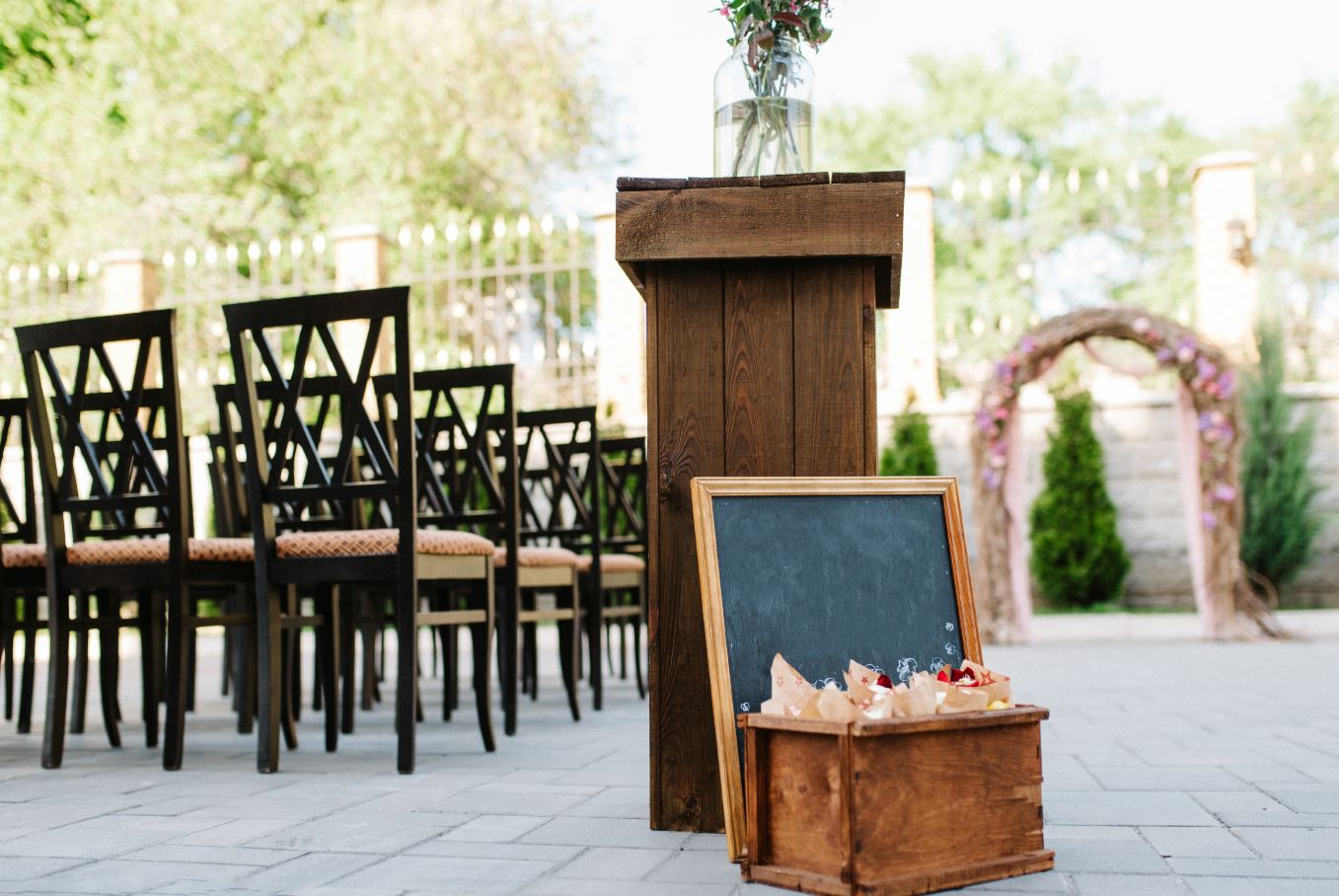You already have a beautiful gown, designed and measured to fit every shape and curve of your body perfectly. You’ve already chosen the flowers that will decorate the aisle to make your wedding look like it’s straight out of a fairytale. You’ve already booked the reception, hair and makeup artists, photographers, and caterers for your big day.
It seems like you’ve already taken care of everything that we mentioned in our ultimate wedding guide, except for one thing – the canonical interview.
Ah yes, the canonical interview. There are a million things that couples stress over when it comes to their wedding day: entourage, menu, wedding favors, etc. For those who are planning on saying their vows in front a priest, the canonical interview is an additional prerequisite before you can say “I do.”
What’s the meaning of a canonical interview?
While arranging your wedding banns, you will be asked by the Church to schedule a pre-nuptial or canonical interview. Known in Tagalog as dulog, this initial interview is required by the Church so they can find out any possible obstacles to your upcoming wedding. More importantly, the canonical interview lets them determine your knowledge of the doctrines, duties, and responsibilities of a Catholic marriage.
What happens during a canonical interview?
Each parish has its own canonical interview process but generally, it will include:
Answering a form
Before the canonical interview takes place, you and your partner have to answer a form that covers basic questions about the Catholic principles on marriage. It also tackles personal questions about you and your partner. For instance, some questions are about the qualities that attract you to your fiancé or your feelings on secrets and past relationships.
One on one interview
After you’ve finished answering the questionnaire, you’ll have a one-on-one meeting with the priest who will officiate your wedding. Either you or your partner will go first. During this part, the priest will just validate your answers to the questionnaire and provide his own perspective or thoughts to your answers. Think of it as a friendly chat with a tito who just wants to offer some advice.
Couple interview
Some churches will require you and your fiancé to have a couple interview. During the interview, you’ll be answering much more personal questions about your relationship. The priest may ask the both of you to talk about the experiences you had when you first met, how the both of you fell in love, the causes of major fights, and what keeps the both of you together. Tip: bring tissues because if you’re sensitive and sentimental like me, these types of questions might move you to tears.
Once you pass the canonical interview, the priest will hand over a letter that you’ll submit to each of your respective parishes. The letters will request for the marriage banns to be posted for three consecutive weeks on your parish. This lets the public know that you’re getting married.
What are the common canonical interview questions?
They vary per parish but generally, the canonical interview form will contain fields asking for your basic information as well as personal questions such as:
- What is marriage for you?
- What are your obligations to your children?
- Why should you get married at church?
- How long is the relationship?
- What are your expectations from a marriage?
- What are your apprehensions about marriage?
- Do you feel like you are being forced into this marriage?
- If your partner has problem with drugs, alcohol or sexuality, would you still marry them?
- Do you have an illness or a condition that might be hindrance to sexual intercourse?
When should we schedule our canonical interview?
You and your partner should set the meeting with the parish priest at least three months before your wedding. The earlier, the better, as the Church will issue a request for marriage banns from the parish. The request will be posted three Sundays before your wedding, but only after the canonical interview has been done.
Also, in case the interview doesn’t go well, or you feel like you’re not a right fit for the particular parish, you’ll have plenty of time to look for another church. While this doesn’t happen often to couples, it’s always better to be safe than sorry.
Make sure you show up on the date of your scheduled interview as the church might cancel your application and wedding reservation. Priests are busy people too and there are many couples waiting to be interviewed.
Canonical interview misconceptions
Women’s online forums about marriage are filled with plenty of misunderstandings about the canonical interview. Let’s debunk the most common ones:
You’ll be asked bible-related questions
If you’ve forgotten the readings from the New Testament that you swear you studied during your Catholic school days, don’t fret. The form nor the priest won’t ask any knowledge questions about the Bible. The questions are all situational and related to your relationship. You won’t need to read the Bible or review your Theology notes. Just be yourselves.
The priest will have you recite prayers
No, the priest won’t have you recite prayers so don’t panic if you can’t memorize all of them. However, some priests make the couples practice their wedding vows.
It’s the same as the pre-cana seminar
While both the canonical interview and pre-cana are required by the Church, this doesn’t mean they’re the same thing. Head over to the next section to find out more about the pre-cana seminar.
What’s a pre-cana seminar?
After the canonical interview, you and your fiancé will be given schedules for a pre-marriage or pre-cana seminar. Simply put, the pre-cana is a marriage preparation course or seminar to help you ease your way into married life. It’ll also tackle the do’s and don’ts inside the Church and during the ceremony.
There are various ways a parish will have you take your pre-cana, including one or more of:
- Meetings with a sponsor/married couple who can act as mentors to engaged couples
- A course taken during a single day, usually on the weekends
- Meetings with your deacon or priest over the span of a few weeks
- A weekend retreat with other couples who are also engaged
While the exact format for the pre-cana varies from parish to parish, the content and concept is consistent, with the most common topics discussed being: Children and Parenting, Spirituality and Faith, Careers, Conflict Resolution, Intimacy and Cohabitation, Commitment, and Family of Origin.
How long is a pre-cana seminar?
The duration of the pre-cana seminar ultimately depends on your parish. Some pre-cana seminars only take half the day to complete while other parishes schedule the seminar for 1 to 2 days. There are also those who break the pre-cana up into various sessions over the span of a few weeks.
If you have a strict schedule that you want to manage, it’s best to ask the parish for their schedule so that you can plan an arrangement as quickly as possible. If you can’t attend the pre-cana seminars of your parish, there also other churches, such as Quiapo Church, whose pre-cana seminars are open for couples who will not have their wedding in the parish.
What about if my partner isn’t Catholic? Do they still need to attend the canonical interview and pre-cana seminar?
Yes, they do. The Catholic Church does not forbid its members from marrying people who are non-Catholic but if you want to get married in a church, you have to follow the rules.
For decades, it has been the practice of the Church to marry Catholics with non-Catholics. However, for the holy matrimony to push through, the Catholic in the relationship is obliged to preserve his/her own faith and ensure that their children will be baptized and educated in the Catholic Church.
These topics will surely be tackled during your canonical interview, so it’s best to prepare your answers for the questions headed your way. It might seem nerve-racking but as long as you can assure the priest that you will keep your obligations to the Catholic Church, they won’t restrict you from marrying your partner of a different religion.
You will also need to bring in a witness, particularly someone who has known your non-Catholic partner for years. You can either bring your parents or a close friend. The priest will ask your partner if they will you practice your faith freely and baptize your children as Catholics. Your witness will have to sign a document as proof of the agreement.
Why are all of these necessary? Well, one of the reasons the Catholic Church exists is to safeguard all of those under its care. If you’re a Catholic and you insist on marrying a non-Catholic, the Church wants to protect you and your soul by making sure that your partner understands the moral teachings and obligations of the Church. Basically, they just want to ensure that your faith and soul will not be in jeopardy after the wedding.
You’re probably itching to get into your wedding dress, walk down the aisle, and say your wedding vows in front of the love of your life, but before you can do those, you’ll need to get through the canonical interview and pre-cana seminar first. Yes, they can be quite stressful, but once you plan out your schedule and just be yourselves during the process, it will all be a breeze and the happily ever after you dream of will be well within your reach.

Author: Chryss Segovia
Chryss loves ice cream, literature, and East Asian pop culture. She would like to pet your dog.




